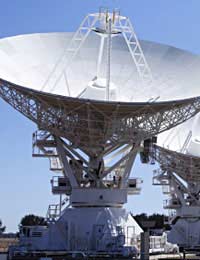UFO Research Today

In the first flush of UFO mania in the late 1940s reaction to the phenomenon was fresh and uninhibited. Raw amazement and open bewilderment were expressed by ordinary people, scientists, politicians and the military. There was a public clamour for an official investigation. After all, these mysterious aircraft might well have been some form of Soviet secret weapon. How could the government just ignore something which might present a threat?
The era of official investigation opened in the early 1950s and lasted approximately until the beginning of the 1970s. Projects Grudge and Blue Book were sufficient to stave off the public outcry. But did they ever do any real investigation? Most outside observers, and some inside observers such as J. Allen Hynek, one of Blue Book’s consulting scientists, conclude that there was no real investigative intent in any of these inquiries. Their results appear to have been framed in advance, and their agenda was nothing more than to give the appearance of doing something about UFOs to appease the members of the public and politicians who persisted in asking pestering questions about the subject.
As well as the official projects, a number of private UFO research organisations came into being. Today several of these still exist, including the Mutual UFO Network (MUFON), NICAP (the National Investigations Committee on Aerial Phenomena) and the Centre for UFO Studies (CUFOS). The Committee for Sceptical Inquiry (CSI, formerly CSICOP) should also be mentioned, although it approaches the UFO phenomenon from a resolutely sceptical perspective.
Typically these organisations have a few thousand members who pay a subscription and receive a newsletter or journal periodically. They usually maintain some facility, such as a web page or a telephone hotline, through which anyone can report a UFO encounter. The organisation’s members may serve as field investigators and turn up, asking further questions of the witnesses or probing events at the scene. Reports are stored and filed away and the most notable feature in the organisation’s journal. Although their boards of directors typically include a few scientists, the truth is that these organisations survive on shoestring budgets with minimal complements of paid staff and lack the resources needed to pursue a large-scale, wide-ranging scientific inquiry of the UFO phenomenon as a whole.
For a time, it seemed like NICAP in the United States might be an exception to this. In 1964, it issued a comprehensive “UFO Evidence” report which attracted a great deal of attention. Its membership and staff increased and, for a while, NICAP was the “go-to” group whenever a news organisation needed a UFO quote. It looked as if things were building up to some kind of breakthrough, but the publication of the dismissive report of the officially-sanctioned Condon committee put a great dampener on things. Even though it has now been demonstrated that the Condon committee was only going through the motions, and had already arrived at its conclusions before its investigation had even begun, many of the casually UFO-curious members of the public found the sceptical conclusions of this panel of eminent scientists persuasive. NICAP’s resources dwindled, and though it still survives, it is in a much diminished capacity.
Apart from the resource-constraint issues which limit their effectiveness, a few of the deeper thinkers in the UFO field, such as Jacques Vallée, have denounced the major UFO research organisations for their whole approach to the subject, claiming that they are obsessed with the extra-terrestrial hypothesis and not open enough to other, more parapsychological, possibilities.It seems that only the government has the resources and the credibility, whether deserved or not, to take the study of UFOs forward. Yet, in our own time, officialdom has shown barely a hint of interest in the phenomenon. And there is at the moment almost no pressure on the government to undertake an investigation of UFOs. Paradoxically, this is because the conspiratorial belief that the government already knows all about UFOs, and is probably colluding with extra-terrestrials, has taken hold among those with the greatest interest in the subject. In so far as UFO aficionados now exert any pressure on governments, it is for disclosure – in other words getting them to tell us what we think they already know - rather than for further research.


Re: The Truth About Alien Implants In Human Bodies
And It Exactly the same materials that are now insider C-19 shots. Quinta Columna explain This with video…
Re: Billy Meier
What about the 100+ witnesses to various phenomena, the metal alloys, beamship sounds? I think you should include more facts to improve your article.…
Re: The Truth About Alien Implants In Human Bodies
Hi, recently, I’ve received an implant in my inner ankle area, right below my ankle bone. It is curious to…
Re: The Dyfed Mystery
I sure a ufo in Wales England in January lthis year omg
Re: Walter Haut's Deathbed Roswell Confession
Anyone who has any doubts that Roswell happened should read Philip Corso's book. I am so glad he mentioned it in…
Re: The Truth About Alien Implants In Human Bodies
Hi, how do I contact Dr Roger Leir or his assistant Dr Steven Colbern for their urgent help of illegal…
Re: The Truth About Alien Implants In Human Bodies
Hello my name is Mike.Here the past week or so I've been having a reoccurring dream of when I was 10 or…
Re: The Truth About Alien Implants In Human Bodies
Hey there.. i have one experience before 20-23 years ago. I see 2 aliens one my bed and they put…
Re: The Truth About Alien Implants In Human Bodies
Second event. I was choking, being moved by several individuals dressed in white surgical gowns and full…
Re: The Falkirk Triangle
Its interesting to hear of UFO reports in Scotland but do people realise that UFO reports like we hear today just simply didn't exist…